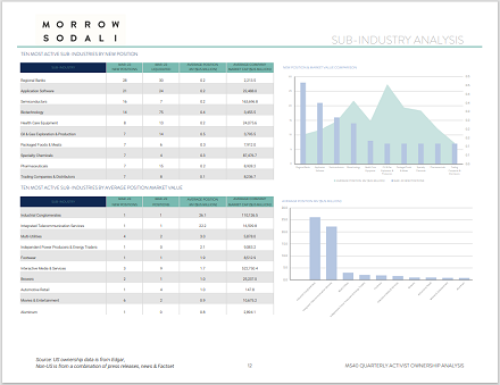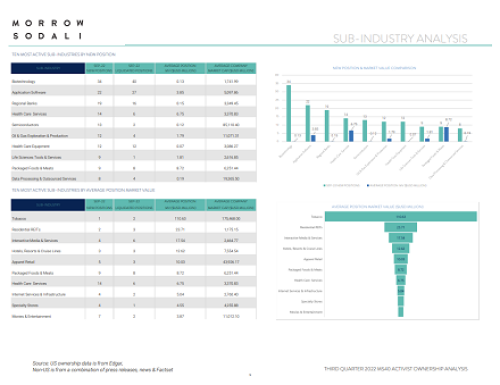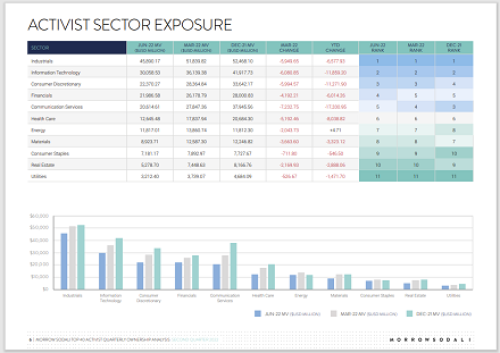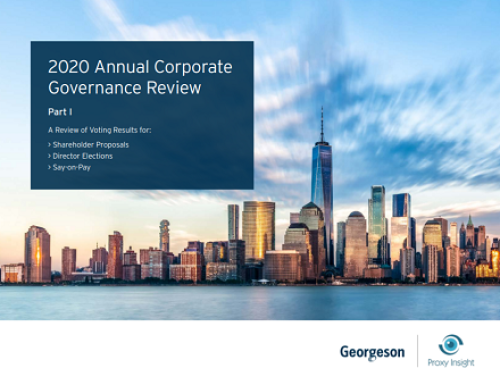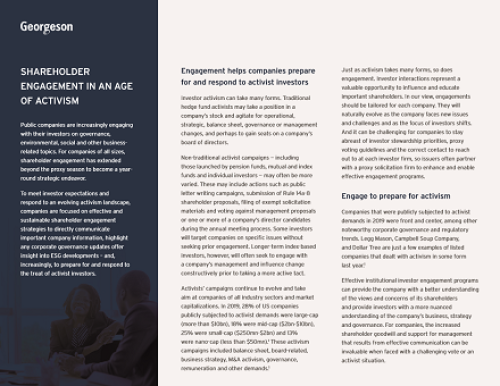Investors have kept up the pressure on UK companies over corporate governance issues despite the huge disruption caused by the Covid-19 outbreak, according to new research.
The proportion of FTSE 350 companies receiving significant opposition (at least 20 percent) to a resolution at the AGM was 22 percent in the first half of 2020, the same level as last year, finds a report from FTI Consulting and Proxy Insight.
But when you include abstentions, which are often used by investors to voice concern, the proportion of companies witnessing major opposition actually grew from 23 percent in 2019 to 27 percent in 2020.
As has been the case in recent years, executive compensation topped the list of shareholder concerns. Of the 10 most-contested votes at FTSE 350 AGMs, six related to the remuneration report and one to the remuneration policy, says the research.
‘Against a backdrop of uncertainty in the markets and the wider economy, investor opposition on key governance issues – and particularly remuneration – remained a constant at FTSE 350 companies during the first half of 2020,’ says Peter Reilly, senior director of corporate governance in the strategic communications team at FTI Consulting, in a statement.
‘Indeed, the data aligns with anecdotal evidence that investors view governance as even more important in turbulent times, as it acts as a layer of protection against evolving crises.’
Tesco saw one of the most high-profile rebellions of the AGM season when 67.3 percent of votes were cast against its remuneration report following a decision to change the company’s peer group for evaluating total shareholder return.
Playtech, meanwhile, saw its remuneration report rejected by shareholders for the second time in three years, as well as a third of votes cast against the re-election of director Ian Penrose, who chairs the remuneration committee.
Both Tesco and Playtech have said they will continue to engage with shareholders over compensation issues.
The UK Corporate Governance Code says companies that receive more than 20 percent opposition to the board recommendation for a resolution should consult with shareholders and publish an update on the situation within six months.
A few shareholder rebellions were more directly related to the Covid-19 pandemic. Standard Life Aberdeen, the UK-based investment company, suffered a defeat over plans to change its articles of association to allow remote access to AGMs. As a special resolution, it required 75 percent approval to pass, but achieved only 63 percent.
Following the vote, Standard Life said some shareholders had been concerned that the change could be used to end physical AGMs. It said that there were ‘no plans’ to stop physical meetings and only wanted the option to add virtual elements such as remote voting.
In another example, TI Fluid Systems saw 57 percent of votes cast against its final dividend resolution after majority shareholder Bain Capital, which owns 54 percent of the company, decided not to back the payout in the current environment.
The report from FTI Consulting and Proxy Insight says governance and compensation issues could become ‘more pronounced’ during the 2021 AGM season. Companies had little room for maneuver in 2020 as they responded to the Covid-19 pandemic, write the authors, but next year may offer more options – and therefore a new batch of difficult decisions.
‘While the level of flexibility to operate will be welcome, it also leads to inherent risk, with investors and wider stakeholders expecting clear justification for companies taking a certain path – nowhere will this be more obvious than in attempting to balance the need to motivate and reward executives with potentially continuing to operate against negative economic outlooks,’ says the report.


